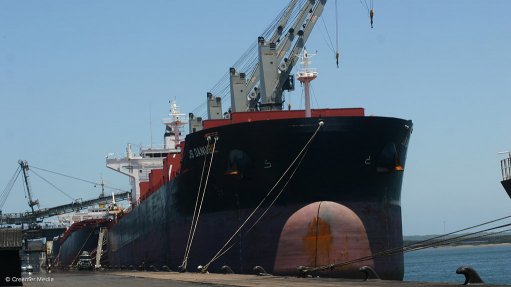
Photo by: Leandi Kolver
While recent years have seen significant investments into mining projects and pit-to-port infrastructure in Africa, there remains a glaring deficiency in bulk ore transport systems on the continent, which cannot exclusively be resolved by investment injections, KPMG Global Infrastructure advisory in Africa head De Buys Scott asserts.
Describing Africa’s mineral transport challenge as twofold, he said in a statement on Wednesday that there was “too much” bulk stock in a single region or country that did not have a direct line from pit-to-port, the establishment of which would require complex cross-border deals.
“Multiparty commitments were required to ensure optimum infrastructure solutions are developed.
“On the other hand, we are also faced with regions or countries where the volumes of resources that are being extracted from the mines aren’t large enough to justify a business case for investment in large transport infrastructure development,” Scott commented.
WSP Civil and Structural Engineers COO Darrin Green further noted that the bulk of logistics-associated infrastructure, particularly pit-to-port rail solutions, were driven and implemented by resources companies, which presented a “complicated” divergence of government requirements for social reform and the objectives of these companies.
“At the end of the day, no amount of finance and innovation is enough to get a pit-to-port project out of the pipeline and onto the ground without government engagement and transparent partnership, as infrastructure projects are long-term investments,” Scott concluded.
According to Ruckus Wireless regional sales director Michael Fletcher, sea transport was “usually” the most economical way to move bulk stock, but this relied on the existence of efficient harbours and ports on the continent.
He asserted that there was a global trend for ports to become more involved in value-added activities, such as cargo processing and logistics, as there was an increasing need to improve the efficiency of pit-to-port turnover worldwide.
“Exact positioning and tracking of all containers is, therefore, key. But, to optimally do so, connectivity and reliable connectivity is essential. As such, having access to a reliable connection allows logistic managers to obtain and manage container, crane and vehicle information in real time, which significantly optimises the entire chain process,” Fletcher held.
Dariel Solutions executive director Greg Vercellotti added that this would require mining companies, ports and harbours to acknowledge and adapt to new
and innovative technologies.